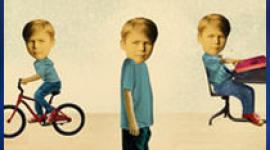Adult ADHD Diagnosis, Treatment, Relationship and Work Issues

Dr. Joyce Nash, psychologist and author discusses adult ADD, ADHD diagnosis, along with treatment and ADDult work and relationship issues.
David is the HealthyPlace.com moderator.
The people in blue are audience members.
Conference Transcript
David: Good evening. I'm David Roberts. I'm the moderator for tonight's conference. I want to welcome everyone to HealthyPlace.com.
Our topic tonight is "Adult Attention Deficit Disorder Issues." Psychologist, Joyce Nash, Ph.D. is our guest. Dr. Nash has a private practice in Menlo Park, California. She is the author of 7 self-help books, along with having a private practice. One of her specialties is treating Adults with ADD, ADHD (Attention Deficit Disorder, Attention Deficit Hyperactivity Disorder).
We'll be starting with the Adult ADD diagnosis and treatment issues, then moving on into adult relationship and work issues. And, of course, Dr. Nash will be taking questions from the audience.
Good evening Dr. Nash. Welcome to HealthyPlace.com. Thank you for being our guest tonight. Most of the attention on ADD has been on children and adolescents. Still, many adults with ADD are being overlooked, misunderstood, undiagnosed, and untreated. Why is that? Is it difficult to diagnose ADD-ADHD in adults?
Dr. Nash: Good evening. For a long time, mental health professionals have believed that ADHD disappeared at about age 12. We now know that isn't true, although some people still doubt the diagnosis. Making the diagnosis of ADHD in adults is difficult. There are no definitive tests that say "yes, you've got it." What we do is a combination of things to decide "by the weight of the evidence" if ADHD or ADD is present.
Let me pause for a moment and say that there are now two subtypes of ADHD (Attention Deficit Hyperactivity Disorder) that are recognized. One is the primarily Inattentive type and the other is the primarily Hyperactive-Impulsive type. It is possible for a person to have either or a combination of both. The way we go about diagnosing is through a combination of:
-
a clinical interview that takes into account childhood history;
-
use of paper-and-pencil self-report measures, such as the Connors;
-
watching what the person does in the interview, i.e., observation; and
-
seeing what changes happen as the result of treatment, specifically, ADD medication treatment.
David: There are medications, private therapy, support groups available to help adults with ADD. Which do you recommend as the first line of treatment and why?
Dr. Nash: Probably the best bet is to find a psychologist who is trained to assess ADD (Attention Deficit Disorder) and start there. He or she should then be able to refer for a medication evaluation to a psychiatrist if that seems appropriate. Many people who do appear to have ADD don't want to start with medication, however. Therapy that does not use medication can focus on how to cope with ADD symptoms. Support groups are great, especially CHADD, which has chapters all over and a website. It is a good place to get initial information.
David: Because of the difficulty in obtaining an ADD, ADHD diagnosis, would you recommend that a person get a second opinion if they aren't satisfied with the first diagnosis?
Dr. Nash: Getting a second opinion is okay. A problem is that many people have read the popular literature on ADD and have memorized the ADD symptoms. They, then, rattle these off to the interviewer, who may take them on face value. It is important that whomever the person sees for diagnosis be trained and understand Attention Deficit Disorder in adults.
David: Here are some audience questions, Dr. Nash
val1: I have ADHD, so do all 4 of my children. How common is this?
Dr. Nash: It is believed that between 2 and 5% of children have ADHD, but estimates vary depending on the study and the criteria used. Often an adult "discovers" that he or she has ADD when the child has been diagnosed. ADD does tend to run in families.
David: Does ADD start in childhood and progress into adulthood? Or can it arise in adulthood without appearing in childhood?
Dr. Nash: ADD never arises in adulthood. Some symptoms of Attention Deficit Hyperactivity Disorder are always present in childhood, usually before age 7. The ADHD symptoms in childhood may be overlooked, however, and become a problem progressively. The key is to understand what is age-appropriate behavior and distinguish that from behavior that is "not normal."
David: Here's an audience comment, then more questions:
Starsdancing: I've shown ADHD symptoms all of the 40 years of my life, even before most doctors knew what it was. Only after looking at the 3 of 5 of my kids that have it, was I able to find a doctor who would consider me to have ADHD.
Stacie: Why are so many doctors hesitant to start an adult on Ritalin, even when the signs point to ADHD?
Dr. Nash: Ritalin is a stimulant drug and as such is closely monitored by the government. In addition, there are side-effects that can cause problems. Usually, the first intervention with adults with ADD is an antidepressant. This is generally a good idea because by the time an adult with ADD is "of age", they are often depressed as well. If the antidepressant doesn't help (usually an SSRI like Prozac), then the doctor may move to a stimulant.
chilly: I have consulted a psychiatrist about the possibility of ADD, and after only 15 minutes he concluded that I "absolutely do not have it" because I made good grades in school; even though I have many other traits and ADD symptoms. How do you feel about eliminating the diagnosis based solely on this fact?
Dr. Nash: I think 15 minutes and one criterion--good grades--is not a good basis on which to decide a diagnosis. Many ADD adults compensate in various ways. Some have uniformly good grades. Some have high marks in some subjects and low marks in others--usually, the ones they aren't interested in or that are BORING.
add_orable: I had "known" for some time I had ADD because it was there in my school report. I found a specialist, took his name to my doctor and asked for the referral. He didn't believe me until my mind started to wander and my talking became rapid. I informed him that ADD in women can be very different than it appears in males.
Dr. Nash: It might be a good idea to take some handouts with you to the doctor's office before seeking diagnosis or treatment, especially if you are seeing an MD. CHADD has lots of terrific handouts that spell out in easy to understand language, the different "faces" of ADD.
David: I'd like you to address the differences between the appearance of ADD in women and men. Does ADD appear differently in women than it does in men -- symptom-wise, I mean?
Dr. Nash: Men with ADD tend to show more "active" symptoms, like aggression, anger, irritability. Women with ADD tend to be dreamers and "spacey." Of course, it can go either way.
netboy: Is it true that most ADD children can become Bipolar Adults? If so, how can you differentiate between whether an adult has Attention Deficit Disorder or Bipolar?
Dr. Nash: ADD can co-occur with a number of disorders, including depression, obsessive-compulsive disorder, anxiety disorders, etc. I haven't heard that ADD leads to, or causes, Bipolar.
Attention Deficit Disorder is believed to be a neurological problem--a difference in the way the brain functions, especially the frontal lobes or the "executive system". Bipolar results from an imbalance in the chemistry in the body and brain, usually in a deficit of lithium salts. I don't see how ADD could cause Bipolar, but I don't think they are mutually exclusive.
The symptoms of ADD and Bipolar are quite different. ADD symptoms are more or less constant and don't vary-- i.e., they are not: there sometimes, and not there other times.
Bipolar, which is also known as manic depression, involves an alteration (for most people) between a "high" state of mania or hypomania ("high but not that high") and depression.
David: Dr. Nash is a psychologist, not a psychiatrist, and as such isn't an expert in medication issues, but maybe you could answer this question:
tink2: I've been taking Adderall for two years, and I am concerned about possible addiction. My doctor says that it is no more addictive than caffeine.
Dr. Nash: Stimulant drugs can be addictive, which is why the government watches it so carefully. In addition, they cause side-effects such as insomnia. I'd talk to my doctor again or seek a second opinion.
David: Here are a few audience comments regarding adult ADD diagnosis and treatment. Then we'll address Adult ADD and relationship issues:
Starsdancing: There are still many docs who believe you outgrow ADHD.
tink2: Since I've been on Adderall, I can better help my own children to organize themselves.
Stacie: CHADD is great for the support and they have been great in helping me get through the diagnosis stage.
add_orable: I'm seeing one of the top ADD adult specialists in Australia. It has come from my father's side. My doctor believes me now and is getting quite interested!
Dr. Nash: More and more psychiatrists are willing to consider the diagnosis of ADD, now that the research evidence is accumulating.
David: On the relationships front: Living with ADD can easily feel like an emotional roller coaster, both for the adult with ADD and also for the spouse or partner of the adult with ADD. What does the partner need to understand that would help the relationship go smoother?
Dr. Nash: ADHD can wreak havoc on relationships, especially if the non-ADD partner doesn't understand what is going on. I often see couples that involve one ADD and one non-ADD person. It is so important for the non-ADD spouse to get educated about what ADD is. Otherwise, she (or he) may take the behavior as a personal affront. It is possible to teach the non-ADD person how to be supportive of the ADD spouse. It is also important for the non-ADD person to learn to understand and deal better with her frustration and anger that result from the behavior she sees but doesn't understand.
David: When you say "wreak havoc" on a relationship, what are you referring to, and what ADD symptoms cause that to occur?
Dr. Nash: The non-ADD spouse is likely to take it personally when the ADD person forgets appointments, loses things, etc. Often she will say, "Why can't he just think!" She gets angry, which in turn can make him feel criticized, misunderstood, and angry.
Sometimes, it is the ADD person with the anger problem. When he gets frustrated with himself, he can take it out at home. So the ADD person needs to learn how to cope better with his situation so that anger is less likely or more manageable.
netboy: How can a spouse help the ADD mate structure their day?
Dr. Nash: Often, an ADD person marries a spouse who is highly organized and detail-oriented. This is terrific for the ADD person, but the non-ADD detail-oriented spouse can become frustrated. Both spouses need to learn how to work together. An ADD person usually does much better when there is a structured environment. The ADD person should learn to use some type of organizing system, but the key is that it must be SIMPLE. Some day organizers are just too overwhelming. Some ADD persons like the Palmcorders, others don't.
The non-ADD spouse can be helpful by providing reminders and playing back up. However, she must be willing to do so and understand why it is necessary, and he (the ADD person) must be willing for her to play this role.
In couple's therapy, these are some of the issues we address. In addition, she (the non-ADD person) can help out in managing his impulsivity, if that is a problem. For example, she can send him "silent signals" when he is interrupting or talking too much. My husband is ADD and we use a signal system in social situations where I gently tug on my earlobe, and that is his signal to slow down, take a breath, stop talking, start listening.
cBYcc: How can coping skills be learned for the angry, ADD male?
Dr. Nash: The first thing is to understand the emotion of anger and that it is the body's hard-wired alarm system. Once we understand that anger is inevitable, especially in the presence of frustration or fear, then we can focus on what to do with the anger. Anger is not a behavior; aggression (shouting, yelling, cursing, throwing things, etc.) is a behavior that is usually, but not always, driven by anger.
Next, we learn to understand what triggers his anger. What are the situations that are "high risk" for anger. Usually, they are being tired, hungry, in pain, overwhelmed, or otherwise distressed. The coping skills needed depend on the situation. It may be necessary to take time out, leave the arena, and "catch your breath." Go for a walk, but don't rehearse angry thoughts while you are doing so. Leaving an upsetting situation is a behavioral strategy.
Another type of coping skill involves thinking--talking oneself down, so to speak, from being angry. Trying to see or understand the situation another way.
Dobby: Any suggestions for explaining your Attention Deficit Disorder to your children?
Dr. Nash: Children are naturally full of energy, at least most of them. Use simple concrete language to explain your ADD to your children. (If they, too, are ADD, keep it really simple.) Say something like, "You know how you can get so excited sometimes that you forget things, well Daddy can get that way too." Try to help them understand that everyone is different, but that doesn't mean bad. It just means that each of us has to learn different ways to "be good."
David: Here are a couple of audience comments on Adult ADD and relationship issues, then we'll go onto ADD work issues:
cBYcc: My husband and daughter have ADD, and I feel I am constantly trying to "smooth" things for them!
add_orable: My better half says he exists to pick up after me and find my keys and glasses. He says "how do you do it? (laughing)" I say, "it is just a talent," and his life has meaning!
tink2: I've found that exercise improves my ADD symptoms.
Dr. Nash: Exercise releases endorphins and provides a calming effect. Some ADD people develop a substance abuse problem because they try to medicate away their symptoms that way. Exercise is a much better solution.
David: One of the most common problems adults with ADD experience in their jobs or careers, centers around time management -- getting things done on time. What do you suggest for dealing with that?
Dr. Nash: As to work-related issues, I believe it is really important to learn to PLAY TO YOUR STRENGTHS. I once worked with an attorney who graduated at the bottom of his class but was hired into a firm even so. Then, he was fired from that job. He was convinced that he shouldn't be an attorney because he couldn't remember trial dates, when to submit briefs, etc. But he loved constructing and arguing a case in court. I convinced him to start his own firm and hire someone to do the details--remind him of court appearances, etc. At first, he argued that he "should" be able to do these things. He did hire someone finally (part-time), and now he has his own successful law firm with several attorneys working for him. ADD people are often better being their own boss.
But even if you do work in an organization, learn to delegate, delegate, delegate. Say "no" to jobs that are too detail-oriented or repetitive. It just isn't an ADD person's strengths. An ADD person is usually creative and a "big picture" thinker. Let someone else do the details.
There is a saying I like repeating to my ADD clients: "It is easier to ride the horse in the direction it is going." Play to your strengths and don't try to be what you aren't. Build a support system around you. You may have to tinker a bit to find what works for you. Keep trying.
David: One of the hallmarks of Attention Deficit Hyperactivity Disorder is forgetting, losing things, not being organized. What can adults do to help them remember and keep track of things?
Dr. Nash: We used to have the problem (more so than now) at our house. We developed a system that works for my ADD husband. We have an "in" drawer and "out" drawer in the chest in the foyer. Everything in his pockets goes into the in drawer each night and goes into his pockets in the morning. In the morning he also takes anything in the out drawer with him. Periodically, we coordinate calendars, and I play back up. He emails me copies of every communication that relates to both of us. (It used to be that he would agree to a social invitation and forget to tell me). Now, he just forwards emails to me or he emails me anything that comes to his mind. We have a saying here: "If it isn't written, it's not real."
These are just some of the ways that spouses can work together to deal with ADD.
David: That's a good system. Here's a good suggestion from one of our audience members:
add_orable: Turbonote.com has a wonderful little program that is like a post-it note for your computer. You can set it to alarm if you like too. It is wonderful!
David: Another work difficulty centers on "paperwork"-- trying to keep up with the details. Do you have any suggestions for handling that?
Dr. Nash: My husband also uses turbonote! Each ADD person has his or her own presentation of ADD or specific set of symptoms. Managing paperwork can be a problem. This is where Obsessive Compulsive Disorder and ADD can overlap. Some OCD people are hoarders. They can't make a decision about where to put something, or they can't bear to part with it, so they pile it. Filing is boring. ADD persons abhor boring tasks.
Here again, delegating is a good idea, or finding a simple system of managing paperwork. But if you have paperwork strewn all over the place, piled on the floor, etc., and you have trouble getting rid of paper, consider consulting a professional about the possibility of OCD complicating your ADD (God forbid).
add_orable: How do you deal with housework. None of us are really any good at it. Hubby does it every now and then. I am hopeless and never get it finished. I am sure I have lost a few friends as it is embarrassing for them to come over to an untidy house.
Dr. Nash: ADD people don't do well with boring or repetitive tasks. If you can afford it, hire someone to clean your house. Create a simple system for organizing things. As usual, the advice is to delegate and create a structure that supports you.
David: I know it's getting late. Thank you, Dr. Nash, for being our guest tonight and staying to answer everyone's questions. And thanks to everyone in the audience for coming and participating. I hope you found it helpful.
Dr. Nash: Thank you for the opportunity to be with you.
David: Good night everyone. and thank you again for being here tonight.
We frequently hold topical mental health chat conferences. The schedule for upcoming conferences, and transcripts from previous chats, are here.
APA Reference
Tracy, N.
(2007, June 5). Adult ADHD Diagnosis, Treatment, Relationship and Work Issues, HealthyPlace. Retrieved
on 2026, March 3 from https://www.healthyplace.com/adhd/transcripts/adult-adhd-diagnosis-treatment-work-and-relationships



